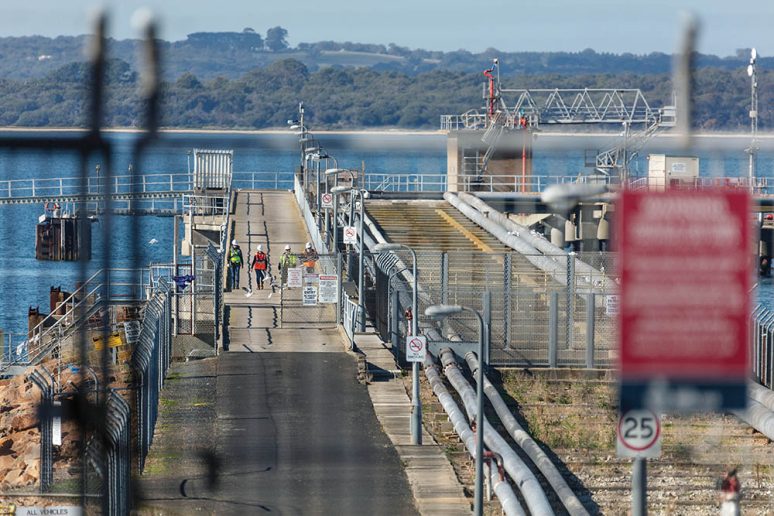By Kelly Parkinson, AGL’s senior manager project engagement
AT the recent community rally at Hastings, some key issues on safety and the environment about AGL’s Crib Point Gas import jetty project were understandably raised.
First, we agree Western Port is an important environmental area that must be cared for.
AGL is a company that has a keen focus on the environment, sustainability and the communities in which we operate. Therefore, we expect to be held to account on these issues.
We’ve been reporting our social and environmental performance through an annual sustainability report. Of course, if you look, you will find areas where others think we could do better in these areas.
In 2015, we unveiled our transition plan, which involves getting out of coal, starting in 2022 and ending in 2050.
It’s designed to be rolled out over time to deliver affordable, reliable and sustainable energy in a more environmentally friendly way. Some in the community want us to do this even faster.
This change is under way and we’ve already developed some of Australia’s largest solar and wind farms.
However, the journey will take time and as we’ve said from the start, we can’t simply switch off today or the lights won’t switch on tomorrow for Australian families and businesses.
That’s why gas remains an important part of the energy mix.
We’ve developed plans for this gas import facility because gas is a crucial part of the transition to a low carbon future and remains important to industry, as well as to households for cooking and heating.
It’s a source of fuel that helps back up wind and solar until major storage technology improves. It does so in a safe, more sustainable way and comes at a time when Victoria needs gas.
We identified Crib Point as an ideal location after an extensive evaluation process; because, we could make use of existing infrastructure and minimise our footprint on the environment.
For the past 12 months, we’ve been working with the community consulting on our plans. During that time, we’ve commissioned 15 expert studies assessing potential impacts on issues like the environment, historic heritage and the marine ecosystem.
These draft reports have spelled out the effects and they’ve been published online at www.agl.com.au/cribpoint and we’re urging the community to look at them and provide feedback.
We are also currently facilitating a community-led independent review of the expert reports.
We will also use safety experts to verify and design the safe operation of the floating storage and regasification unit (FSRU) to ensure it meets all required safety standards.
There will also be regulators from local, state and federal levels who will ensure our proposal meets the required safety standards before we can proceed. These include the Australian Maritime Safety Authority (AMSA), Port of Hastings Development Authority, Worksafe Victoria, Victorian Regional Channels Authority (VCRA), the harbourmaster, Transport Safety Victoria, Maritime Safety Victoria and the Commonwealth Office of Transport Security.
Around the world, LNG ships have become common. There are around 500 operating safely every day and there are more than 100 more on order.
LNG carriers are highly sophisticated with layers of monitoring and protections. There are also a range of strict international conventions in relation to safety and the environment and we will have more community meetings to discuss these. There will be a community drop in information session in Cowes, Phillip Island on 13 September.
We understand the environmental significance of Western Port and we will continue to work with the community to try and address its concerns.
First published in the Southern Peninsula News – 28 August 2018




